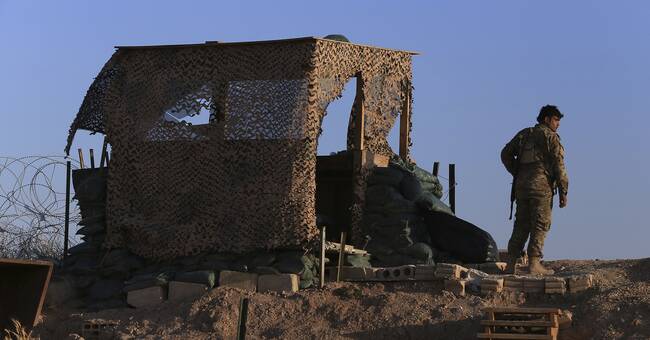Prisoners suspected of less serious crimes, those who are ill and those over 75 will receive an amnesty.
While those suspected of serious crimes will have their sentences halved.
By less serious crimes is meant persons who have had contact or been connected to the terrorist group.
This is stated by the Kurdish autonomy in northeastern Syria today.
However, today's decision does not apply to the Syrian prisoners who fought for IS and committed war crimes.
Holds 11,000 prisoners
The Kurds in northeastern Syria are holding 11,000 IS prisoners from around the world.
2,000 men in prisons and about 9,000 women imprisoned in refugee camps.
Some have been imprisoned for over three years.
The foreign prisoners, including the Swedish ones, are not affected by today's decision.
Shiyar Ali, Sweden's representative for Kurdish self - government, tells SVT Nyheter that the decision is part of a reconciliation process.
And it takes a lot of resources to keep all these prisoners and refugees.
- It requires, for example, food, medicine, surveillance, guards, etc.
Our own people are starving and we need these resources ourselves.
It is also a process of reconciliation decided on by Kurdish self-government together with the coalition, the United States and the region's clans.
- In the long run, we hope to be able to close the Al Hol camp.
Instead, we want to build a camp for IS prisoners where they can be de-radicalized and where the children can go to school, says Shiyar Ali.
Want to start legal proceedings
How many Syrian prisoners are involved?
- It's about a few thousand people.
Exactly how many we do not really know yet.
What will happen to the foreign IS prisoners?
- We hope to be able to start legal proceedings against them.
Corona has slowed down that work.
We also need resources to be able to try them legally.
You have asked the prisoners' home countries to assist with resources, are they willing to do so?
- We have appealed for help to be able to keep these people and help to have trials several times.
We have also met most European countries, but few are interested.
Many of the prisoners are radicalized, then the countries should help with de-radicalization, it should be in their interest.
Why are it precisely the Syrian prisoners that this decision applies to?
- This is a first step and may in future apply to all prisoners.
But it is a long process in that case.

